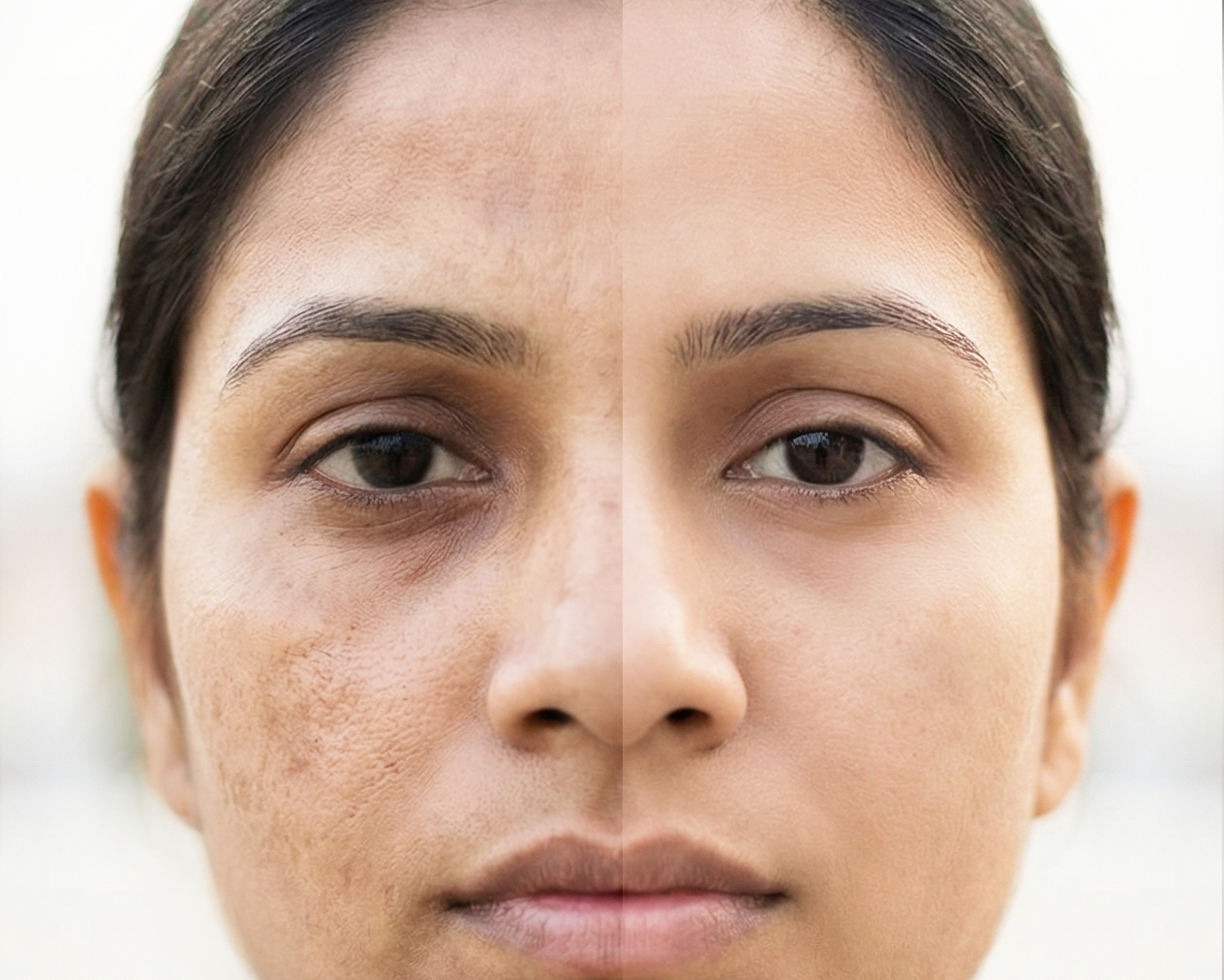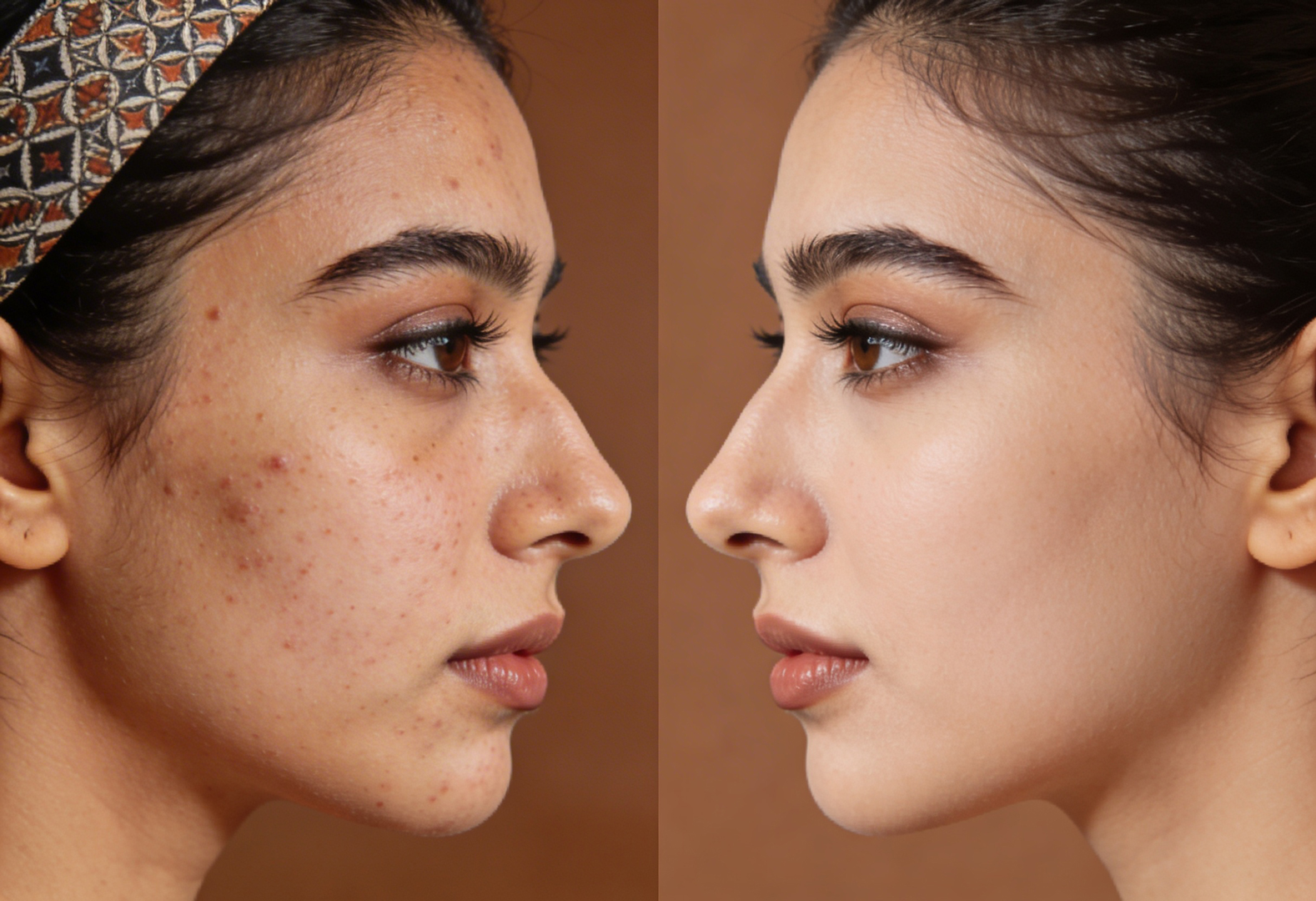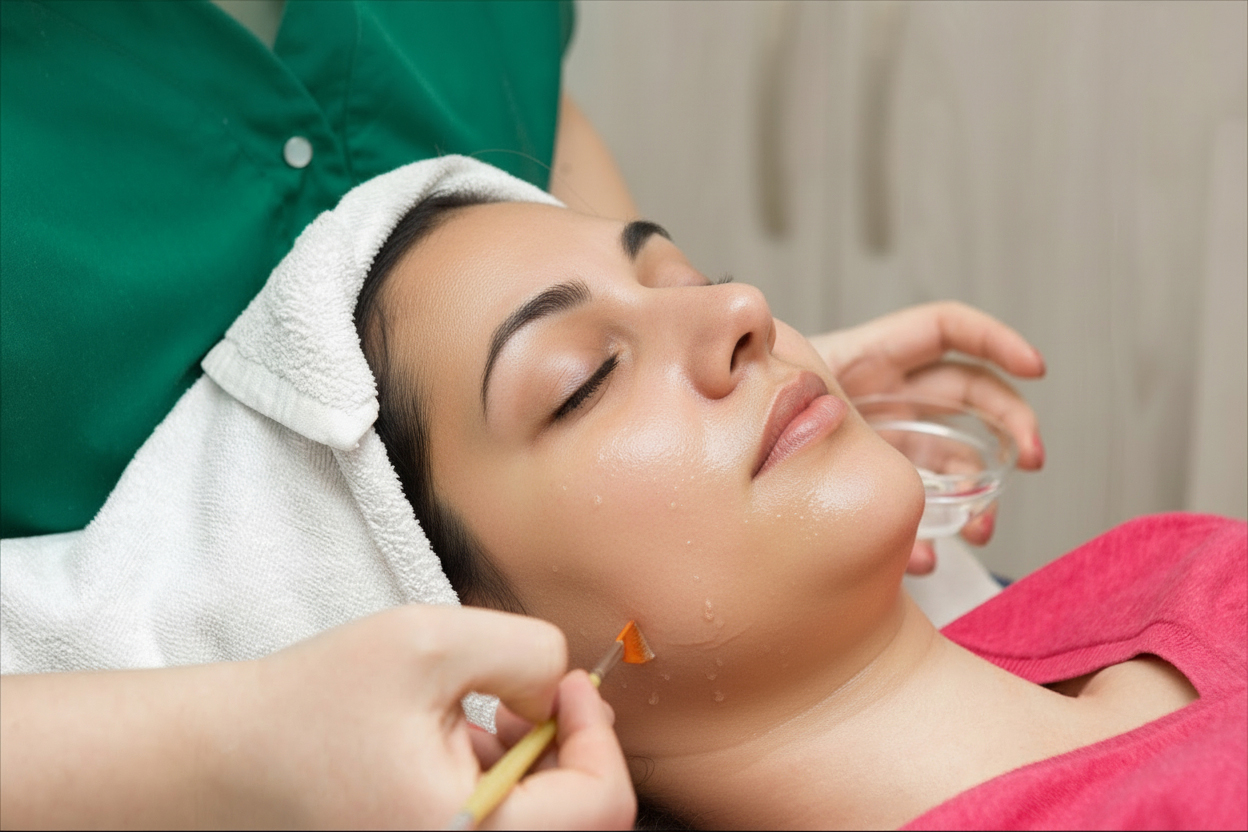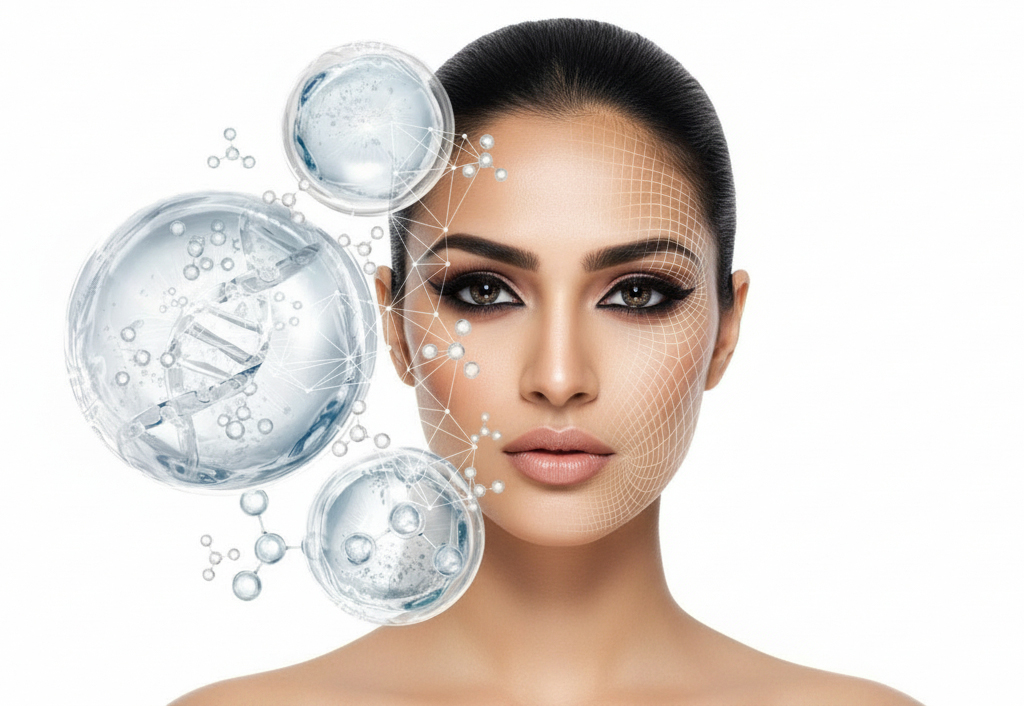Skin care is an essential part of self-care. However, not all skin is the same, and every type of skin has its own requirements. Knowing your skin type can help you create a skincare routine that works for you and keep your skin healthy, hydrated, and looking its best.
Skin is the largest organ in our body and acts as a protective barrier to the outside world. There are five main skin types. Each skin type requires different types of care and treatment to maintain a healthy and radiant complexion. In this article, we will discuss each skin type in detail, including how to identify them and the specific care they need.
1. Normal Skin:
Normal skin is well-balanced, with a smooth and even texture, small pores, and no visible blemishes. It’s not too dry or too oily and usually has a healthy glow. This skin type is fortunate to have a natural balance of oil and moisture that keeps the skin hydrated, soft, and supple. Normal skin is easy to maintain with basic skincare routines and requires minimal attention.
People with normal skin should still follow a regular skincare regimen to keep their skin healthy and glowing. This includes cleansing, toning, and moisturizing twice a day. Additionally, using a gentle exfoliant once a week can help remove dead skin cells and brighten the complexion.
2. Dry Skin:
Dry skin feels tight and can be flaky or rough. It may appear dull and lack elasticity. People with dry skin may experience itching, redness, and irritation. Dry skin occurs when the skin doesn’t produce enough natural oils to keep it moisturized. It can be caused by genetics, aging, harsh skincare products, and environmental factors like cold weather, wind, or low humidity.
Moisturizing is essential for people with dry skin to keep their skin hydrated and supple. Use a gentle, fragrance-free moisturizer that contains ingredients like hyaluronic acid or glycerin, which help to lock in moisture. Make sure you do not use soaps and cleansers that can strip your skin of natural oils. Instead, use gentle, fragrance-free products that are designed for dry or sensitive skin.
3. Oily Skin:
Oily skin is shiny and may have visible pores. It’s prone to breakouts and may feel greasy to the touch. People with oily skin may also experience blackheads and whiteheads. Oily skin occurs when the sebaceous glands in the skin produce too much oil. This can be caused by genetics, hormonal changes, stress, and even overusing skincare products.
It is important for people with oily skin to use products that control oil production and reduce the appearance of pores. Look for products that contain salicylic acid or benzoyl peroxide, which can help unclog pores and reduce acne breakouts. Avoid heavy, oil-based moisturizers, and instead use lightweight, oil-free formulas. Cleansing twice a day with a gentle cleanser can also help to keep the skin clean and clear.
4. Combination Skin:
Combination skin is a mix of oily and dry areas. It is common for the T-zone (forehead, nose, and chin) to be oily, while the cheeks are usually dry. People with combination skin may experience both acne and dry patches. Combination skin occurs when the skin has varying oil production in different areas.
People with combination skin should use different products for different areas of the face. For oily areas, use oil-control products, and for dry areas, use moisturizing products. Avoid using heavy, oil-based moisturizers on oily areas as they can exacerbate the oiliness. Cleansing twice a day with a gentle cleanser can also help to keep the skin clean and clear.
5. Sensitive Skin:
Sensitive skin is easily irritated and can react to many different products, environmental factors, and even stress. It may be dry, oily, or combination and is often accompanied by redness, itching, and inflammation. Sensitive skin occurs when the skin’s protective barrier is compromised, which can be caused by genetics, environmental factors, and overuse of skincare products.
Why Understanding Your Skin Type is Important
Using products that are not suitable for your skin type can do more harm than good. For example, if you have oily skin, using heavy moisturizers can clog pores and lead to breakouts.

On the other hand, if you have dry skin, using a lightweight moisturizer may not provide enough hydration, leaving your skin feeling tight and uncomfortable.
Understanding your skin type can also help you address specific skin concerns. For instance, if you have sensitive skin, you’ll want to avoid products that contain fragrance or harsh chemicals. If you have oily skin, you may want to look for products that contain salicylic acid or benzoyl peroxide to help control breakouts.
Once you know your skin type, you can create a personalized skincare routine that meets your skin’s unique needs. A basic skincare routine includes cleansing, moisturizing, and protecting your skin from the sun. However, depending on your skin type and specific concerns, you may want to add additional steps or products.
In conclusion, understanding your skin type is crucial for maintaining healthy, beautiful skin. By identifying your skin type and using products tailored to your needs, you can keep your skin looking and feeling its best. Don’t hesitate to consult with a skincare professional if you need help determining your skin type or developing a personalized skincare routine.
If you’re looking for the best salon for a facial in Chennai, you may want to consider visiting Anlon Art Salon. They offer a variety of facial treatments tailored to different skin types and concerns, such as hydration, brightening, and anti-aging. Their trained estheticians can also provide personalized recommendations for skincare products and routines based on your skin type and concerns.




